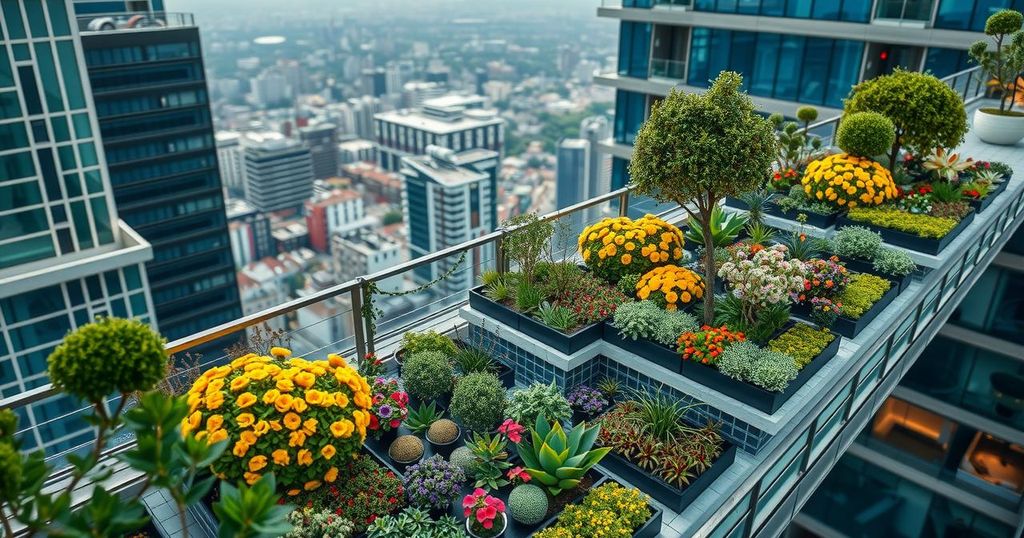Harnessing Terrace Gardens for Urban Climate Resilience in India
The Centre for Science and Environment’s report highlights urgent climate challenges in India, exacerbated by extreme weather events. The increasing urban heat necessitates adaptive strategies such as terrace and balcony gardens, which provide cooling benefits, improve air quality, and promote sustainability. Additionally, these gardens foster community engagement and biodiversity, presenting an effective response to climate resilience.
The Centre for Science and Environment’s Climate India 2024 report has revealed a pressing climate crisis within India, marked by extreme weather events that have claimed over 3,000 lives and damaged millions of hectares of crops. Urban communities, particularly those who work outdoors or reside in temporary housing, face heightened risks from soaring temperatures. Existing government measures are proving inadequate to tackle these challenges, prompting cities to explore green solutions like terrace and balcony gardens. Integrating these green spaces can help mitigate the effects of climate extremes by naturally regulating urban temperatures.
Globally, cities like Copenhagen have successfully implemented green roofs to enhance both environmental quality and community engagement. Similarly, terrace and balcony gardens in India can lower surrounding temperatures significantly, enhancing comfort and reducing energy consumption, which, in turn, helps minimize greenhouse gas emissions. They also provide urban residents with fresh produce and improve mental well-being through reconnection with nature.
These gardens additionally serve to insulate buildings during colder months, contributing to energy efficiency and offering year-round advantages. They foster small ecosystems that attract diverse wildlife, enhancing urban biodiversity, and can facilitate community engagement by providing spaces for neighbors to connect and collaborate on gardening initiatives.
India has the potential to lead in the implementation of green urban strategies. Policy adaptations such as updating building regulations for new constructions to include green roofs, along with subsidies for existing buildings, are critical for promoting the integration of these green spaces. By embracing terrace and balcony gardens, Indian cities can emerge as models in climate resiliency, transforming themselves into cooler, healthier environments.
The increasing frequency of extreme weather events in India has underscored the urgent need for adaptive measures to enhance resilience among urban populations. With the climate crisis manifesting through rising temperatures and infrastructural strain, especially in densely populated areas, urban planning is needed to incorporate nature-based solutions. Green spaces, such as terrace and balcony gardens, are being viewed as practical options to combat the adverse effects of climate change while promoting ecological sustainability and social cohesion.
In conclusion, terrace and balcony gardens represent a vital strategy for Indian cities to combat the immediate challenges posed by climate change. Their ability to cool urban spaces, reduce energy consumption, and foster biodiversity makes them indispensable. With the support of government policies and community engagement, these green solutions can facilitate a significant transformation in urban environments, resulting in healthier, more sustainable cities.
Original Source: www.downtoearth.org.in




Post Comment